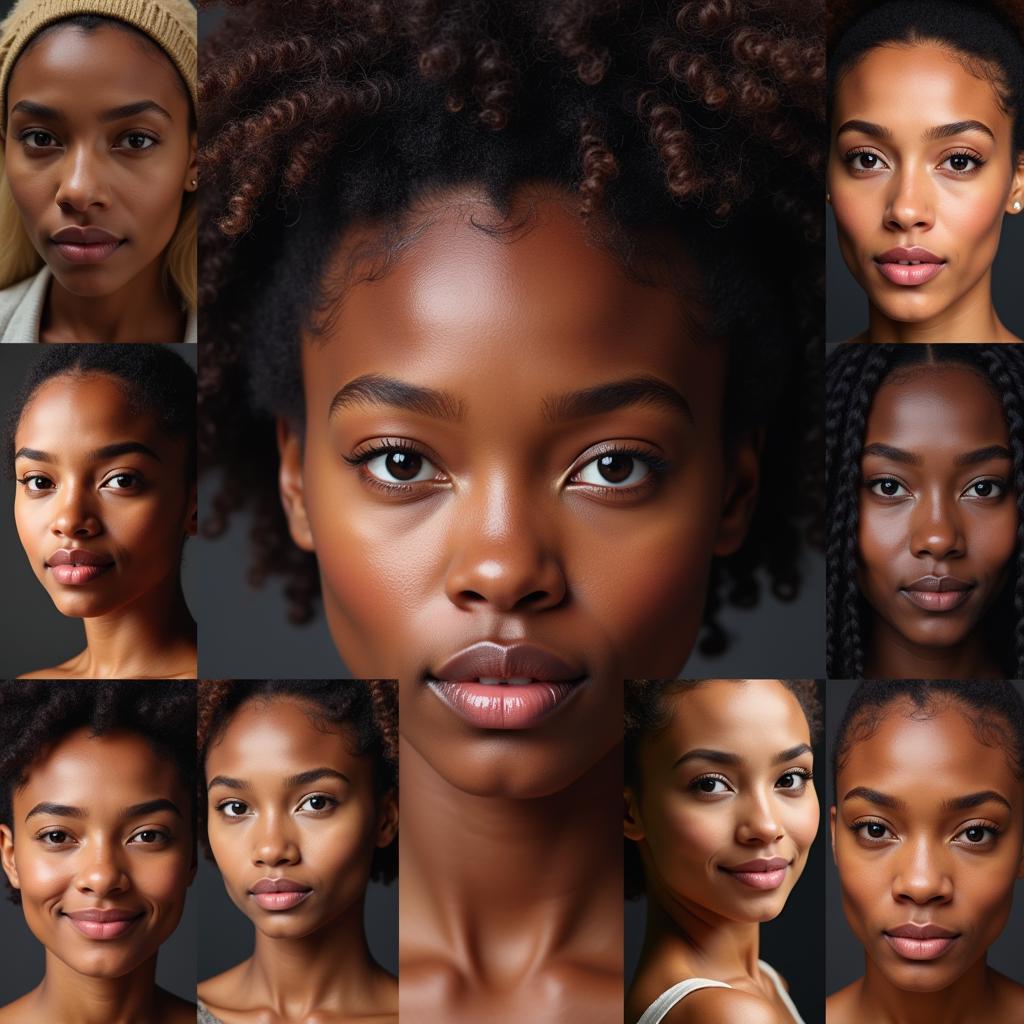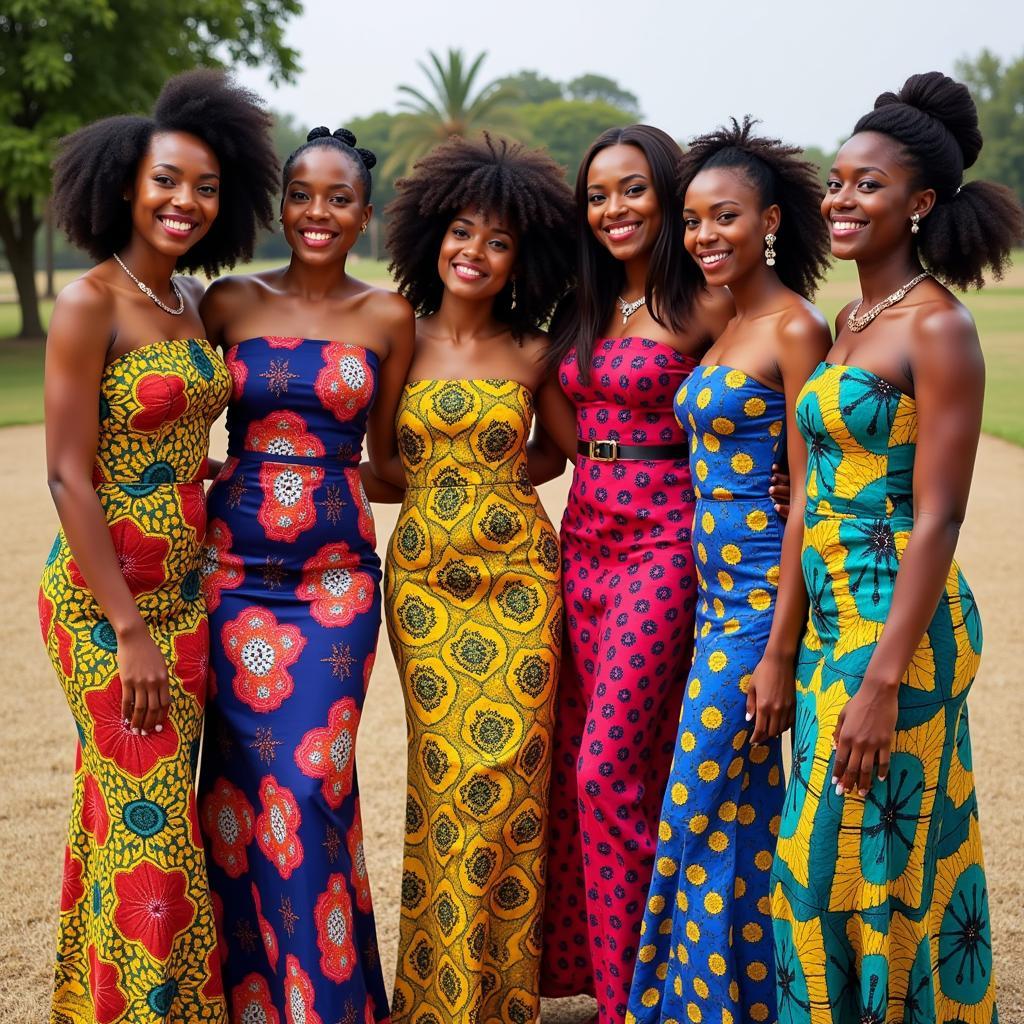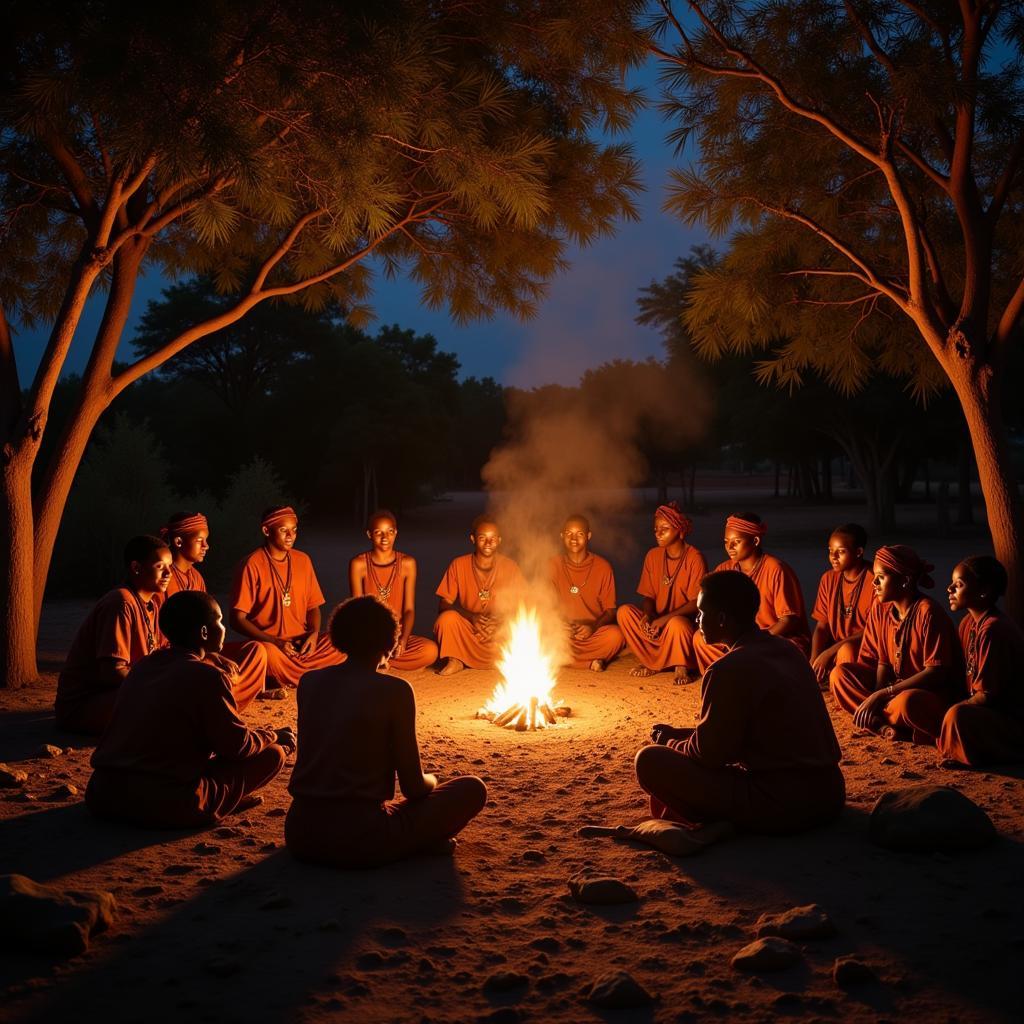Why Are African People Black? Unpacking the Science and Dispelling Myths
The question “Why are African people black?” is one that sparks curiosity and, unfortunately, sometimes even prejudice. The answer, however, lies within the fascinating realm of human evolution and genetics, specifically in the pigment melanin. This article delves into the scientific reasons behind the beautiful spectrum of skin tones found in Africa and beyond, debunking myths and highlighting the richness of human diversity.
Melanin: The Key to Skin Color
The answer to why people of African descent have darker skin lies in a pigment called melanin. Melanin, produced by cells called melanocytes, serves as our natural sunscreen. It absorbs harmful ultraviolet (UV) radiation from the sun, protecting our skin from damage.
Individuals with more melanin have darker skin, which provides them with a natural advantage in regions with intense sunlight, like Africa. This heightened melanin production is a direct result of thousands of years of evolution and adaptation to the environment.
The Role of Latitude and UV Radiation
The intensity of UV radiation varies depending on geographical location. Regions closer to the equator, such as Africa, receive more direct sunlight and therefore higher levels of UV radiation. Over generations, populations residing in these areas developed darker skin pigmentation as a protective mechanism.
Conversely, populations who migrated away from the equator, towards higher latitudes with less direct sunlight, developed lighter skin tones. This adaptation allowed their bodies to absorb more UV radiation, crucial for vitamin D production.
Dispelling the Myths and Misconceptions
Unfortunately, the question of Why African People Are Black has been historically intertwined with racist ideologies and harmful stereotypes. It’s essential to address and debunk these harmful misconceptions:
- Skin color is not indicative of race: The concept of race is a social construct with no biological basis. Human genetic variation exists on a spectrum, and skin color is just one small aspect of that variation.
- Darker skin is not a sign of inferiority: This dangerous and baseless assumption has fueled discrimination and prejudice for centuries. All skin tones are beautiful and reflect the incredible diversity of humankind.
 Diversity of African Skin Tones
Diversity of African Skin Tones
Celebrating the Spectrum of African Beauty
It’s crucial to remember that Africa is not a monolith. The continent boasts a remarkable array of skin tones, from deep ebony to rich copper and everything in between. This diversity is a testament to the continent’s vast genetic heritage and complex history of human migration and adaptation.
african black rose is a term that speaks to the unique beauty and strength found within the African diaspora. It’s a celebration of heritage, resilience, and the power of diversity.
The Importance of Understanding Our Shared Ancestry
Exploring the scientific reasons behind skin color variation underscores a fundamental truth: we are all connected. Our ancestors adapted to different environments, leading to the diverse range of human appearances we see today.
Understanding these scientific concepts helps dismantle prejudice and fosters a greater appreciation for the tapestry of human life. It reminds us that our differences are what make us unique and that celebrating this diversity enriches us all.
FAQs:
-
Does everyone in Africa have dark skin? No, Africa is the most genetically diverse continent on earth. Skin tones vary widely across different regions and ethnic groups within Africa.
-
Is melanin only responsible for skin color? Melanin also plays a role in hair and eye color. Variations in melanin production contribute to the diverse range of these features.
-
Can skin color change over time? While our baseline skin color is determined by genetics, environmental factors like sun exposure can cause temporary changes in pigmentation.
Seeking More Information About African Culture?
For those interested in delving deeper into the vibrant tapestry of African Life, history, and heritage, numerous resources are available. Contact us at +255768904061, email kaka.mag@gmail.com, or visit our office at Mbarali DC Mawindi, Kangaga, Tanzania. Our team is available 24/7 to assist you. Explore other fascinating articles on our website, including:
- african american studies courses
- african democratic change logo
- african american dentist in nj
- [african american studies phd programs](https://omenkamag.com/african-american-studies-phd programs/)
These resources offer further insights into the richness and complexity of African culture and history.


